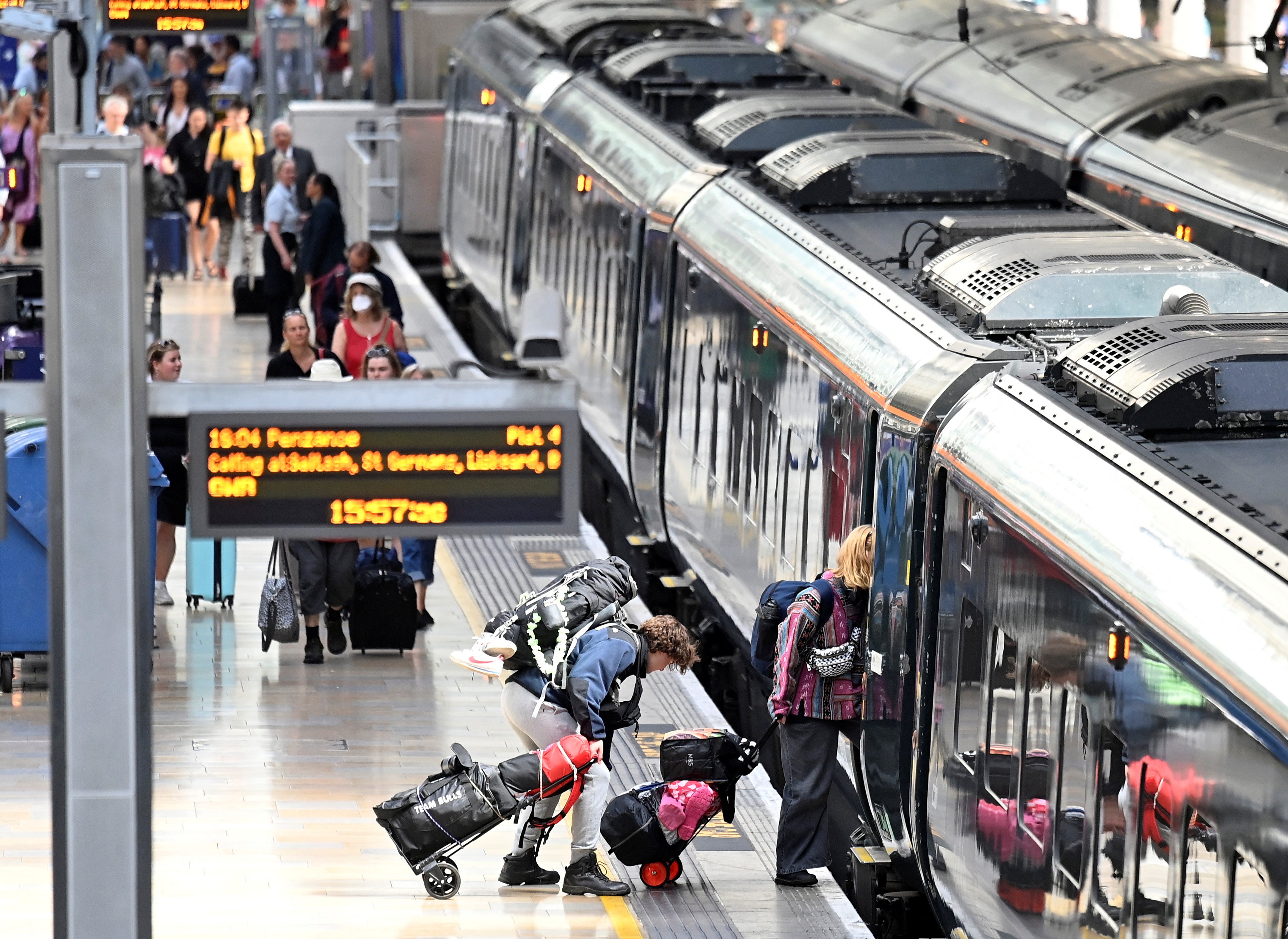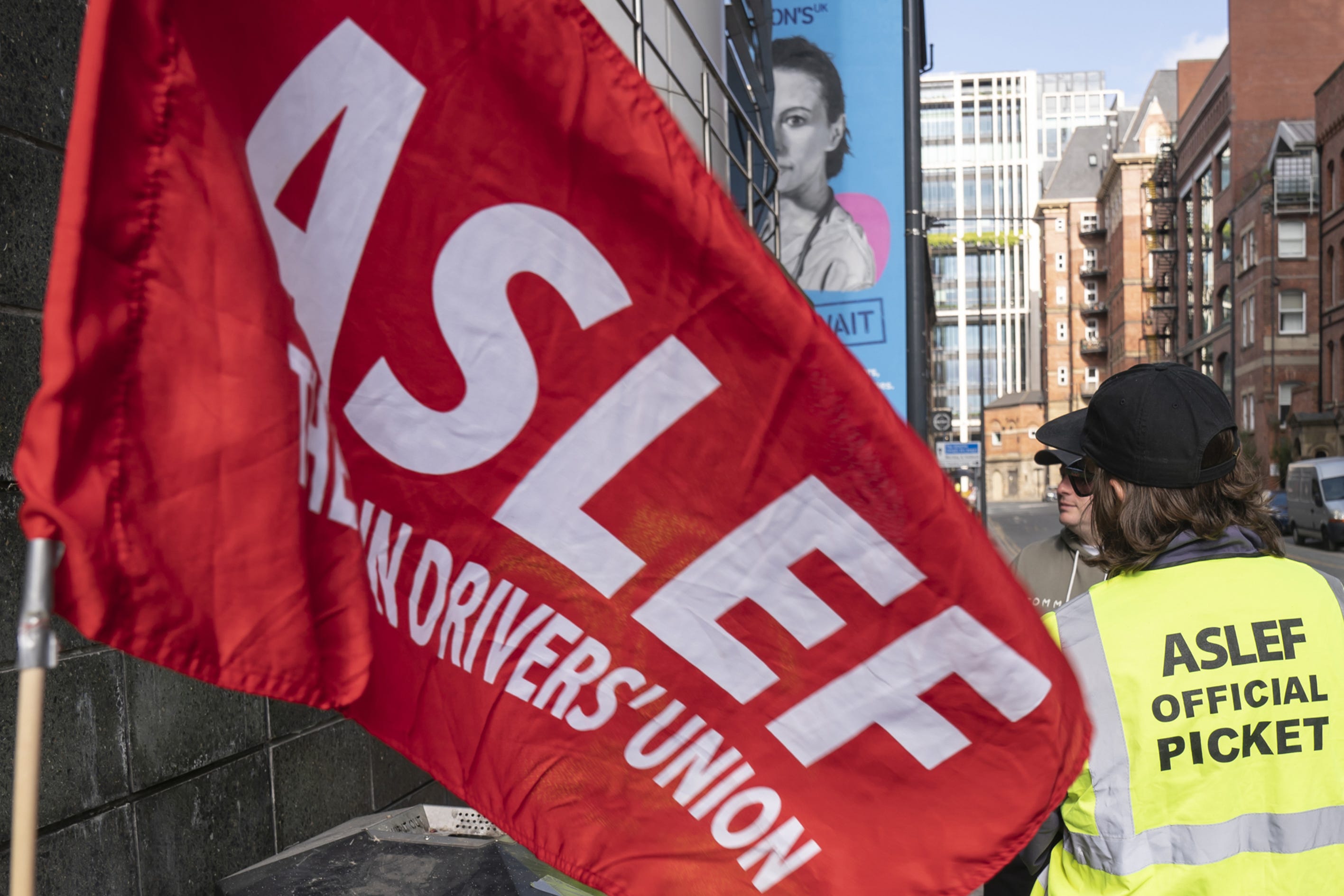Two-year standoff over rail strikes in England comes to an end as train drivers accept pay deal
It brings to an end what Aslef called the longest train drivers’ strike in recent history, during which drivers took 18 days of strike action

Your support helps us to tell the story
From reproductive rights to climate change to Big Tech, The Independent is on the ground when the story is developing. Whether it's investigating the financials of Elon Musk's pro-Trump PAC or producing our latest documentary, 'The A Word', which shines a light on the American women fighting for reproductive rights, we know how important it is to parse out the facts from the messaging.
At such a critical moment in US history, we need reporters on the ground. Your donation allows us to keep sending journalists to speak to both sides of the story.
The Independent is trusted by Americans across the entire political spectrum. And unlike many other quality news outlets, we choose not to lock Americans out of our reporting and analysis with paywalls. We believe quality journalism should be available to everyone, paid for by those who can afford it.
Your support makes all the difference.Two years of misery caused by strike action for rail passengers has come to an end following a breakthrough in negotiations over drivers’ pay.
Members of drivers’ union Aslef have voted overwhelmingly in favour of an offer put forward by the new Labour government.
It resolves a pay dispute involving 16 rail companies that started in July 2022 and saw drivers take part in 18 days of strike action, causing widespread disruption on the country’s rail network.
On Wednesday, Aslef said members voted by 96 per cent in favour of the deal, which will result in a pay rise of almost 15 per cent over three years. It will see the average salary of a train driver, without overtime, rising from £60,000 to £69,000.
The dispute involved the 14 English rail firms whose operations are controlled by the Department for Transport.
They comprise all the major commuter and intercity operators, including South Western Railway, Govia Thameslink, Avanti West Coast, GWR, LNER, CrossCountry and Northern.

Mick Whelan, Aslef’s general secretary, said: “It is with great pleasure that we can announce the end of the longest train drivers’ strike in history.
“The strength and resilience and determination shown by train drivers to protect their hard-won and paid-for terms and conditions against the political piracy of an inept and destructive Tory government has prevailed.
“It was not a fight we sought or wanted. All we sought after five years without a pay rise, working for private companies who, throughout that period, declared millions of pounds in profits and dividends to shareholders, was a dent in the cost of living.”
He added: “Now we will get back to our day job of seeking a green, well-invested, vertically-integrated and safe public railway.”
Transport secretary Louise Haigh heralded the breakthrough, adding the government could not afford not to settle the deal with drivers with the prospect of more strike action.
She said: “After two years of chaos on our railways under the Conservatives, this is an important step towards fixing our railways and getting the country moving again.
“It will ensure a more reliable service by helping to protect passengers from national strikes, and crucially, it clears the way for vital reform – including modernising outdated working practices – to ensure a better-performing railway for everyone.”
The pay dispute came on the back of a slump in rail revenue following the pandemic, with the Tory government insisting any pay increase was contingent on wide-ranging reforms to working practices.
However, Aslef demanded a “no-strings” pay rise for its members, with talks on working practices to follow.
As well as strike action, members have also taken part in 11 overtime bans and refused to work on rest days, especially Sundays. On the opening match for England at Euro 2024, services were badly impacted as members refused to work in some regions.
But after the general election, the Labour government put forward a new deal which Aslef recommended members accept.
Join our commenting forum
Join thought-provoking conversations, follow other Independent readers and see their replies
Comments